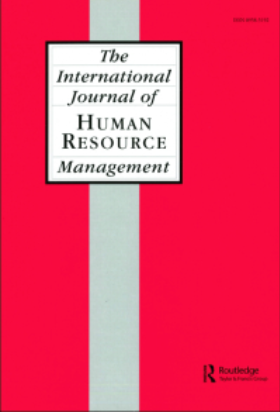企业结构调整的人事管理政策及其对劳资关系的影响:以比较视角下的韩国为例
IF 5.9
2区 管理学
Q1 MANAGEMENT
International Journal of Human Resource Management
Pub Date : 1999-01-01
DOI:10.1080/095851999340657
引用次数: 9
摘要
本研究阐明并分析了20世纪90年代韩国制造企业工作场所重组的人事管理(以下简称PM)政策的主要特征及其对企业层面劳资关系的影响。根据关于企业议价协议最近演变的国家数据,流行的PM政策采取了数字和财务灵活性的形式,而工会在实施这些政策方面的干预很低。本研究的其他企业层面数据表明,这些PM政策通过威胁就业安全,降低了企业工会的组织能力和议价能力。PM政策的这些鲜明特征与企业管理的其他要素以及工会成长的鲜明阶段密切相关。企业经营和工会发展的这些特点,是在过去40年里韩国独特的经济、政治、法律、社会和文化环境中形成的。本文章由计算机程序翻译,如有差异,请以英文原文为准。
Personnel management policies for workplace restructuring and their implications for industrial relations: a case in Korea from a comparative perspective
This study illuminates and analyses the main features of personnel management (henceforth PM) policies for workplace restructuring in Korean manufacturing firms during the 1990s and their implications for industrial relations at the enterprise level. According to national data on the recent evolution of enterprise bargaining agreements, popular PM policies took the forms of numerical and financial flexibility, while union intervention in implementing those policies was low. Other firm-level data in this study showed that those PM policies have reduced the organizational and bargaining power of enterprise unions by threatening employment security. Those distinct features of PM policies are closely related to other elements of corporate management as well as to the distinct stage of union growth. Those specific characteristics in both corporate management and union growth have been shaped by distinct economic, political, legal, social and cultural environments prevailing in Korea over the last four decades.
求助全文
通过发布文献求助,成功后即可免费获取论文全文。
去求助
来源期刊
CiteScore
11.70
自引率
7.10%
发文量
77
期刊介绍:
International Journal of Human Resource Management is the forum for HRM scholars and professionals worldwide. Concerned with the expanding role of strategic human resource management in a fast-changing global environment, the journal focuses on future trends in human resource management, drawing on empirical research in the areas of strategic management, international business, organizational behaviour, personnel management and industrial relations that arise from: -internationalization- technological change- market integration- new concepts of line management- increased competition- changing corporate climates Now publishing twenty-two issues per year, The International Journal of Human Resource Management encourages strategically focused articles on a wide range of issues including employee participation, human resource flow, reward systems and high commitment work systems. It is an essential publication in an exciting field, examining all management decisions that affect the relationship between an organization and its employees. Features include; -comparative contributions from both developed and developing countries- special issues based on conferences and current issues- international bibliographies- international data sets- reviews

 求助内容:
求助内容: 应助结果提醒方式:
应助结果提醒方式:


